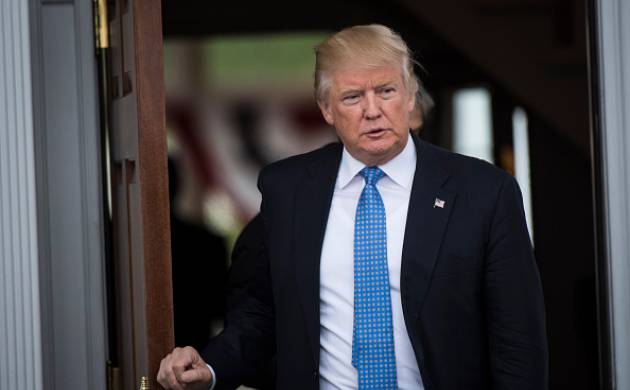Trump asks WTO to reform 'developing' country status
Sat 27 Jul 2019, 15:02:25

US President Donald Trump on Friday asked the World Trade Organisation to define how it designates developing-country status, a move apparently aimed at singling out countries like China, Turkey and India which are getting lenient treatment under global trade rules.
In a memorandum, Trump empowered the US Trade Representative (USTR) to start taking punitive actions if any country, advanced economies, are inappropriately taking benefits of the WTO loopholes.
While Trump did not specifically mention India in the list of countries which according to him are no longer developing nations and over the years have emerged as major economic powers, the presidential memorandum to the USTR is bound to have an impact on some of the benefits that India enjoys from the US under the WTO rules that describes it as a developing country.
Trump said that his memorandum to the USTR would kick off in 90 days. The USTR shall publish on its website a list of all self-declared developing countries that it believes are inappropriately seeking the benefit of developing-country flexibilities in WTO rules and negotiations.
Observing that nearly two-thirds of the WTO members have been able to avail special treatment and take on weaker commitments under the WTO framework by designating themselves as developing countries, Trump said while some developing-country designations are proper, many are patently unsupportable in light of the current economic circumstances.
"For example, seven out of the 10 wealthiest economies in the world as measured by Gross Domestic Product per capita on a purchasing-power parity basis -- Brunei, Hong Kong, Kuwait, Macao, Qatar, Singapore, and the United Arab Emirates -- currently claim developing-country status," he said.
"Mexico, South Korea, and Turkey -- members of both the G-20 and the Organisation for Economic Cooperation and Development (OECD) -- also claim this status," he said.
"When the wealthiest economies claim developing-country status, they harm not only other developed economies but also economies that truly require special and differential treatment. Such disregard for adherence to the WTO rules, including the likely disregard of any future rules, cannot continue to go unchecked," Trump said.
China most dramatically illustrates the point, he asserted.
Since joining the WTO in 2001, China has continued to insist that it is a developing country and thus has the right to avail itself of flexibilities under any new WTO rules, he
argued.
argued.
"The United States has never accepted China's claim to developing-country status, and virtually every current economic indicator belies China's claim. After years of explosive growth, China has the second largest Gross Domestic Product in the world, behind only the United States," Trump said.
China accounts for nearly 13 per cent of total global exports of goods, while its global share of such exports jumped five-fold between 1995 and 2017. It has been the largest global exporter of goods each year since 2009. Further, China's preeminent status in exports is not limited to goods from low-wage manufacturing sectors, Trump said.
China currently ranks first in the world for exports of high-technology products, with such exports alone increasing by 3,800 percent between 1995 and 2016, the US president said.
According to Trump, other economic figures tell a similar story.
These countries claim entitlement to longer timeframes for the imposition of safeguards, generous transition periods, softer tariff cuts, procedural advantages for WTO disputes, and the ability to avail themselves of certain export subsidies -- all at the expense of other WTO members, Trump said.
"These countries have also consistently sought weaker commitments than other WTO members in ongoing negotiations, which has significantly stymied progress," he said.
"Moreover, many of the world's most advanced economies have used developing-country status as an excuse not to comply with the most basic notification requirements under WTO rules, depriving United States traders of vital trade data. The status quo cannot continue," Trump said.
To help ensure that those countries live up to their commitments, it shall be the policy of the United States to make trade more free, fair, and reciprocal by devoting all necessary resources toward changing the WTO approach to developing-country status such that advanced economies can no longer avail themselves of unwarranted benefits despite abundant evidence of economic strength, he noted.
Through his memorandum, Trump empowered the USTR to use all available means to secure changes at the WTO that would prevent self-declared developing countries from availing themselves of flexibilities in WTO rules and negotiations that are not justified by appropriate economic and other indicators.
Where appropriate and consistent with law, the USTR shall pursue this action in cooperation with other like-minded WTO members, the memorandum said.
No Comments For This Post, Be first to write a Comment.
Most viewed from International
Most viewed from World
AIMIM News
Latest Urdu News
Most Viewed
May 26, 2020
Do you think Canada-India relations will improve under New PM Mark Carney?
Latest Videos View All
Like Us
Home
About Us
Advertise With Us
All Polls
Epaper Archives
Privacy Policy
Contact Us
Download Etemaad App
© 2025 Etemaad Daily News, All Rights Reserved.

.jpg)
.jpg)
.jpg)






.jpg)


.jpg)
.jpg)
.jpg)
.jpg)
.jpg)
.jpg)
.jpg)
.jpg)
.jpg)
.jpg)
.jpg)
.jpg)

















